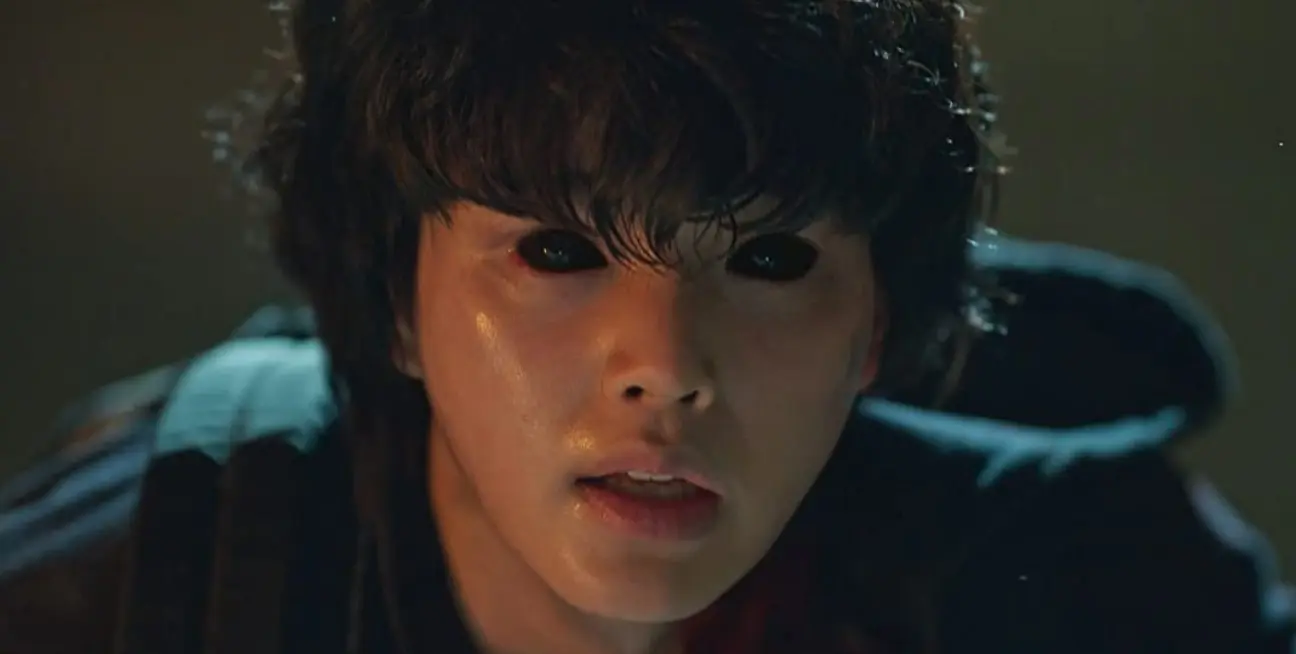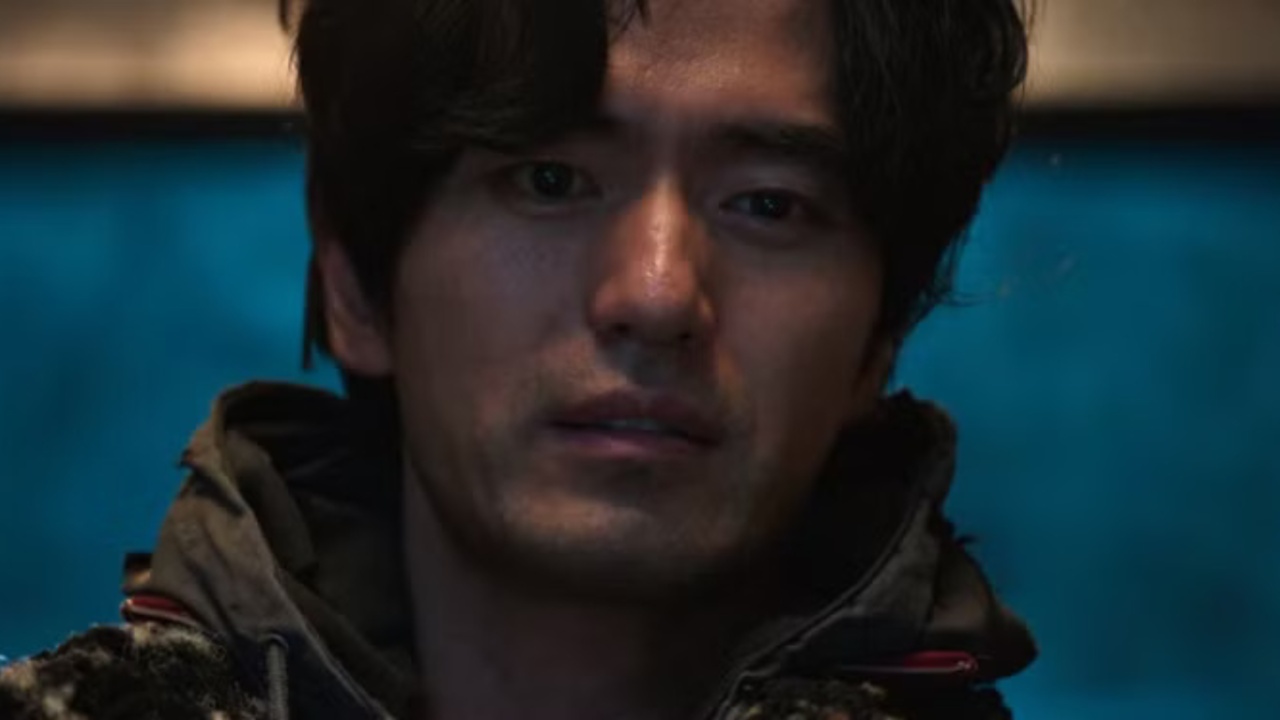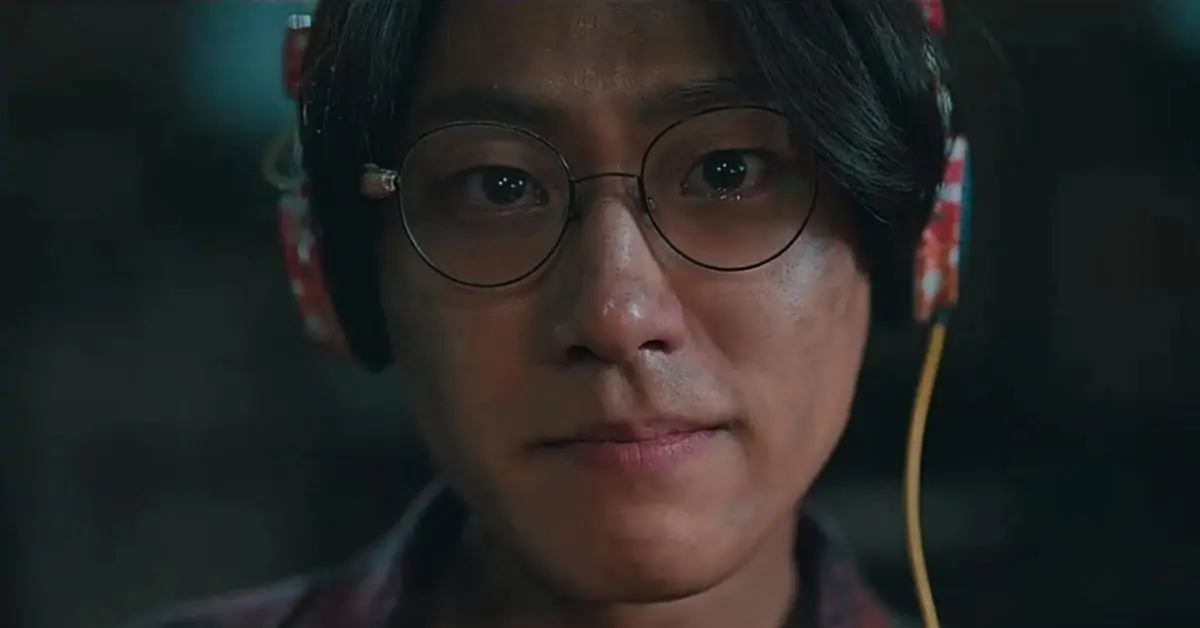Sweet Home season 2 concludes with a dramatic twist: Eun-hyeok, who was presumed dead at the end of season 1, reappears as a monster. Throughout the season, his sister Eun-yu never gave up hope that he was still alive, suspecting that a mysterious monster saving her was her brother in a transformed state. While Eun-yu’s assumption was partially incorrect, the mysterious savior was actually Hyun-su. Eun-hyeok’s survival and transformation were confirmed in the finale.
Emerging from the wreckage of Green Home, he appears as a hybrid of human and monster, hinting at a darker evolution of his character. This moment mirrors the Sweet Home webtoon, where Eun-hyeok also undergoes a similar metamorphosis, further cementing the emotional and narrative weight of his return.
Earlier in the season, Green Home’s surviving residents revisited the building and encountered Myung-sook, who had been presumed dead during the initial monster attacks in season 1. She had been preserved in a monster cocoon, eventually emerging as a hybrid entity, neither fully human nor fully monster.
Like Eun-hyeok, Myung-sook embodies the theme of partial transformation, representing the blurred line between humanity and monstrosity in the series. These character arcs highlight the consequences of trauma and survival in a world dominated by monsters, while foreshadowing the potential for both internal and external conflicts in the upcoming season.
One of the most pivotal revelations in season 2 is that Ui-myeong is actually Sang-won, Yi-kyung’s missing fiancé. Throughout the first season, Ui-myeong’s origin was ambiguous, with viewers unsure whether the name belonged to the doctor whose body he inhabited or to himself.
By the start of season 2, Ui-myeong is occupying the body of Sang-wook, a character who died in season 1. The twist that Ui-myeong is, in fact, Nam Sang-won, adds depth to his motivations, particularly his obsession with understanding and controlling the monster curse. This revelation reshapes the narrative, linking his actions directly to Yi-kyung and establishing him as a major antagonist for future storylines.

Sang-won’s Experiments And Yi-kyung’s Tragedy Highlight Ethical Dilemmas And Emotional Consequences
Sang-won’s backstory explains his transformation into Ui-myeong and his current pursuit of turning humans into monsters. Volunteering himself as a test subject for government experiments, he was exploited by Dr. Im’s research team and treated like a lab rat. Sang-won’s escape and possession of a doctor’s body allowed him to continue his work independently.
This arc illustrates the ethical ambiguities and scientific overreach central to Sweet Home’s storyline, as well as the tragic consequences of human experimentation. Sang-won’s dual identity emphasizes the tension between human empathy and monstrous ambition, and his experiments serve as a critical plot driver for the series’ ongoing conflicts.
Yi-kyung’s fate is one of the most heartbreaking moments of the season. Near the finale, she passes out in a fire and is exposed to heavy smoke. Her daughter, who has the ability to turn others into monsters, touches her mother and transforms her, despite Yi-kyung having had the chance to leave.
Unlike other characters who retain a “happy mind palace” after transformation, Yi-kyung suffers profoundly as both human and monster. She is tormented by guilt, regrets, and pain, unable to forgive herself or reconnect with her daughter. This tragic outcome underscores Sweet Home’s recurring theme of irreversible consequences and the emotional cost of survival in a monster-infested world.
Hyun-su’s role in season 2 is intermittent but significant. After a confrontation with Ui-myeong early in the season, he largely disappears from the main storyline, only reemerging later. He assumes responsibility for raising Yi-kyung’s daughter, earning her trust over her own mother.
At the season’s conclusion, Hyun-su’s monster self converses with Eun-yu, claiming he can “fix things,” though the specifics remain unclear. This interaction hints at a continued moral struggle, as Hyun-su resists Ui-myeong’s offer to recruit neo-humans and remains committed to his humanity. His trajectory suggests that season 3 will explore the complexities of his dual nature and the ethical dilemmas surrounding human-monster coexistence.

Stadium Survivors’ Secrets Expose Tension, Fear, And Moral Dilemmas Among Characters
The stadium, another key location in season 2, introduces a new set of survivors with hidden agendas. Chief Ji and Sergeant Tak maintain order while concealing critical secrets. Ji shelters a monster—presumably her husband while Tak is suspected of being a monster himself.
These concealed truths contribute to ongoing tension, creating a narrative environment where trust is fragile and danger is ever-present. Their subplots highlight how the survivalist environment exacerbates fear, suspicion, and moral compromise, serving as a counterpoint to the Green Home storyline and offering fertile ground for future confrontations.
The season 2 finale leaves multiple storylines unresolved, paving the way for season 3. Yi-kyung’s daughter’s powers remain a major mystery, capable of transforming humans without prior infection and controlling their actions. Dr. Lim has been captured by Ui-myeong/Sang-won, establishing him as a potential primary antagonist.
Hyun-su’s next objectives are uncertain, and the unresolved conflicts at the stadium between survivors add layers of intrigue. Eun-hyeok’s monstrous return and Eun-yu’s ongoing search for him provide compelling hooks, ensuring that viewers are left anticipating the continuation of these interwoven narratives.
The finale of season 2 is rich in thematic and metaphorical meaning. Loss permeates every character arc, with deaths and transformations affecting those who survive deeply. The concept of turning into a monster operates on both literal and metaphorical levels, reflecting how trauma can distort human behavior and identity.
Hyun-su’s explanation of monsters existing in a “happy mind palace” emphasizes the psychological dimensions of transformation, suggesting that becoming a monster may be a coping mechanism for unbearable grief and fear. Overall, the finale explores how tragedy can fundamentally change individuals, leaving viewers with both emotional resonance and philosophical reflection on the human condition.



